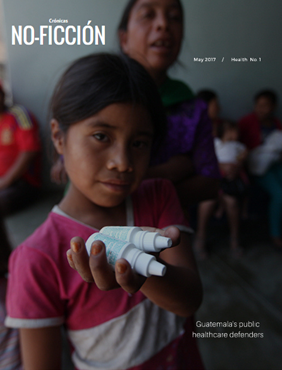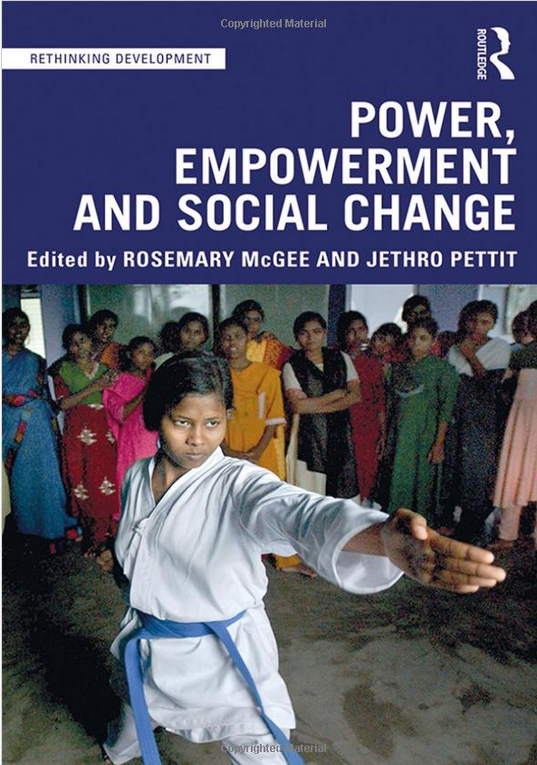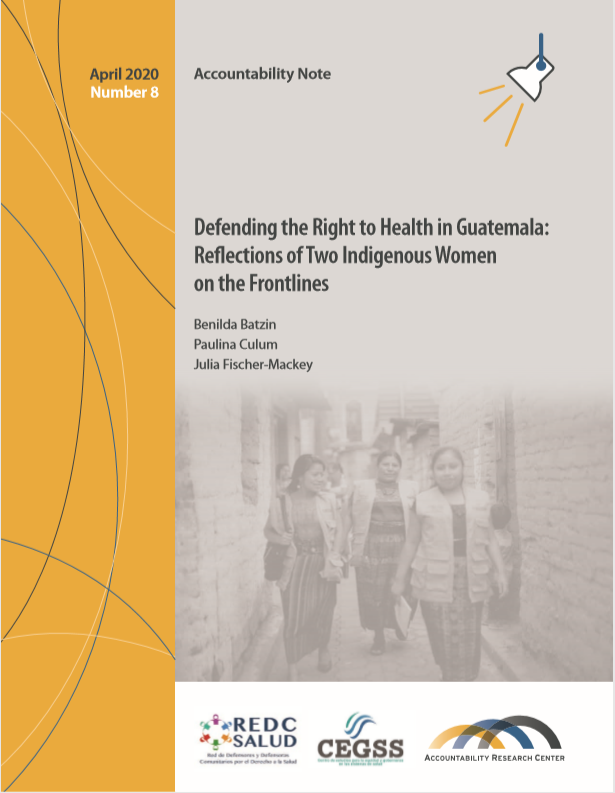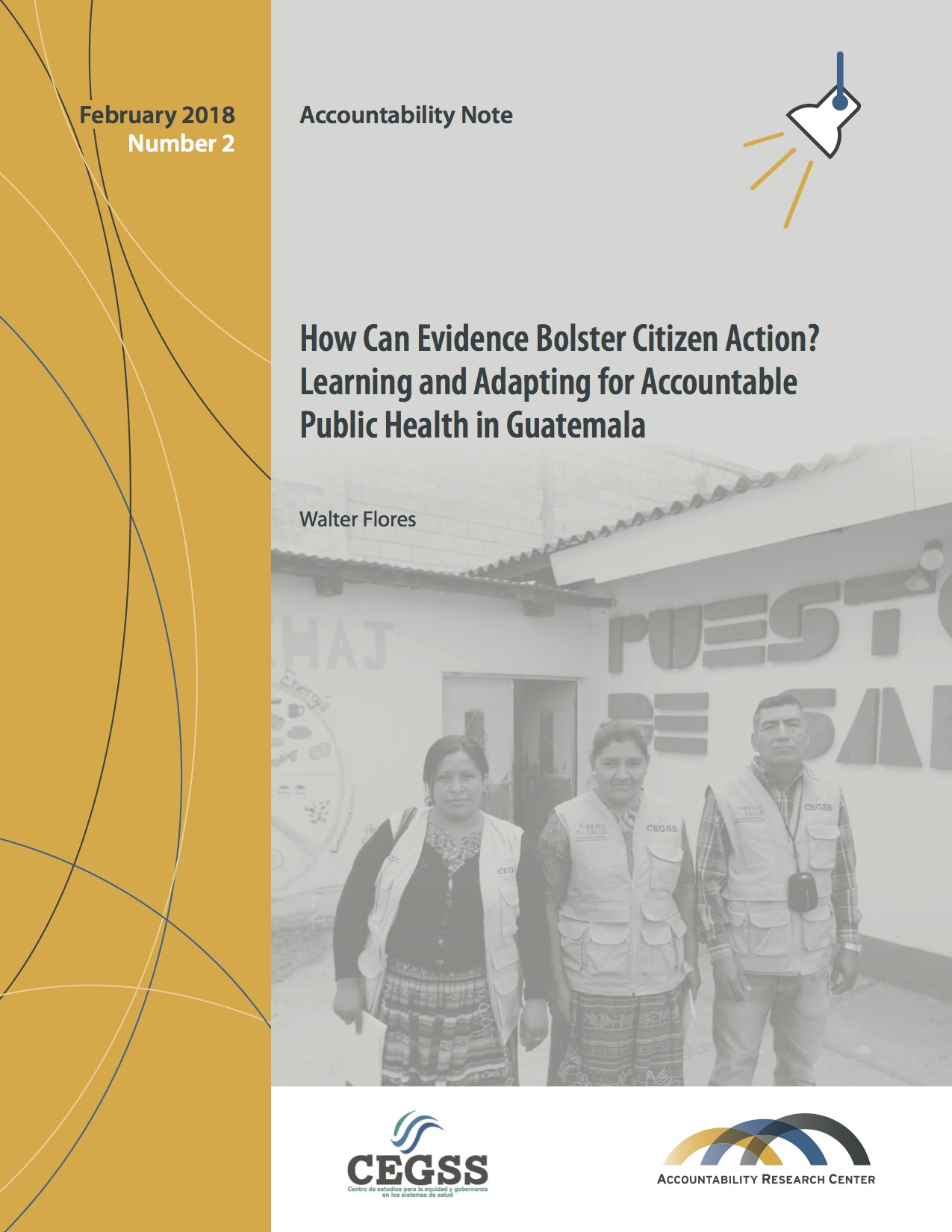
How Can Evidence Bolster Citizen Action? Learning and Adapting for Accountable Public Health in Guatemala
Date: February 2018
Authors: Walter Flores
Publication type: Accountability Note
Published by: Accountability Research Center, CEGSS
Versión en español: Lecciones sobre acción ciudadana y rendición de cuentas en los servicios públicos de salud de Guatemala Most theories of change in the field of transparency and accountability assume that scientifically rigorous evidence increases the possibility of influencing officials and decision-makers. Generating this evidence has been the work of academic experts. Over the last decade, the Centro de Estudios para la Equidad y la Gobernanza de los Sistemas de Salud (the Center for the Study of Equity and Governance in Health Systems, or CEGSS) has considered the question of how to use evidence to influence authorities and promote participation by users of public services in rural indigenous municipalities of Guatemala. Our initial approach relied on producing rigorous evidence through the surveying of health care facilities using random samples. However, when presented to authorities, this type of evidence did not have any influence on them. In the follow-up phases, we gradually evolved our approach to employ other methods to collect evidence (such as ethnography and audiovisuals) that are easier to grasp by the non-expert public and the users of public services. The involvement of users of services in evidence collection was accompanied by civic action strategies to engage with authorities in the resolution of problems. Throughout a decade of work, we learned that methods for gathering evidence that draw in participation from the wider community, that help communities to tell their stories, and that facilitate collective action among service users tend to be the most powerful to influence responsiveness from authorities at local and regional levels of government. In addition, using participatory approaches to generating and interpreting evidence fosters pedagogical processes of civic action that empower service users by activating their roles as citizens and voters. This process has been used to open space for negotiating the allocation of public resources with authorities at different governance levels.
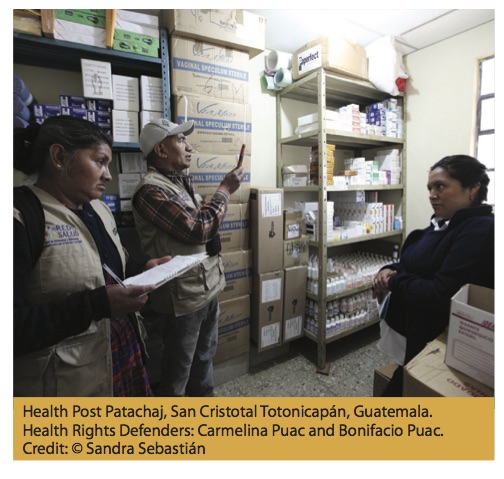
Walter Flores Walter Flores is the executive director the Center for the Study of Equity and Governance in Health Systems (CEGSS). He obtained his doctorate (PhD) and master’s in community health from the Liverpool School of Tropical Medicine (England). Walter has worked as a lecturer, researcher, and consultant in more than 30 countries in Latin America, Africa, Asia, and Europe. He is currently a member of the Steering Committee of the Community of Practitioners on Accountability and Social Action in Health (COPASAH), an international community of practice on social action in health and accountability.

